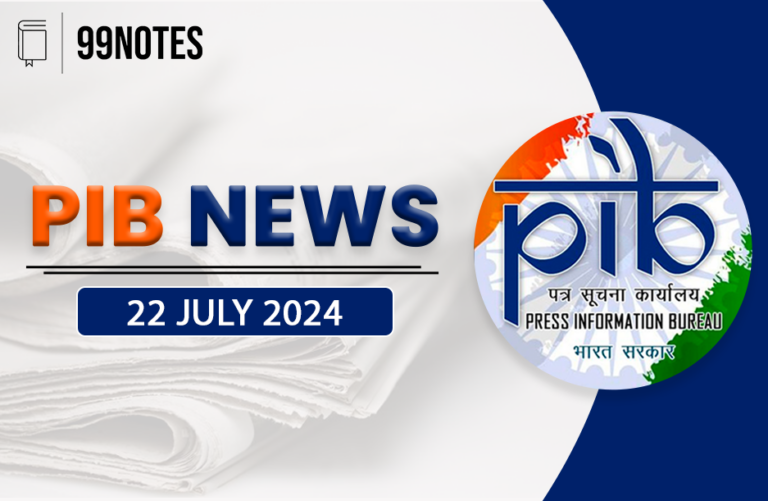4 November 2024 : The Hindu Editorial Analysis
1. The BRICS summit boost to India-Iran ties
(Source – The Hindu, Editorial- Page No. – 8)
| Topic: GS2 – International Relations |
| Context |
|
Analysis of the News
At the sideline of the 16th BRICS Summit Kazan, Russia, the Indian Prime Minister Narendra Modi and Iranian President Masoud Pezeshkian, held a meeting focusing on revitalizing their bilateral relationship. During their discussions, they acknowledged the strong potential and opportunities for deeper collaboration in various fields such as
Key Areas of Cooperation:
The leaders discussed various avenues for enhancing cooperation, notably:
- Chabahar Port: A critical infrastructure project for India-Iran relations.
- International North-South Transport Corridor (INSTC): An important trade route connecting India to Central Asia and beyond.
The focus on these areas reflects a desire to strengthen trade and connectivity, which has been a cornerstone of their partnership.
Energy Resources:
- Energy Significance: Iran is vital to India due to its substantial reserves of crude oil and natural gas, with estimates showing Oil Reserves approximately 209 billion barrels and Natural Gas Reserves around 33,988 billion cubic meters.
- Regional and Global Impact: As of the end of 2021, Iran’s oil reserves accounted for 24% of West Asia’s total oil reserves. These reserves represent 12% of global oil reserves.
Chabahar Port’s Strategic Importance:
- Crucial Asset: The Chabahar port is crucial for India-Iran relations, with a 10-year operational contract signed in May 2024 enhancing its trade role.
- Secure Trade Route: The port’s location outside the Strait of Hormuz offers India a trade route that mitigates risks from potential conflicts in the Persian Gulf.
- Connectivity Improvements: Plans are underway for a 700 km railway link between Chabahar and Zahedan to enhance connectivity.
- Humanitarian Aid Route: A road link from Zahedan to Zaranj in Afghanistan is being developed to facilitate Indian humanitarian aid.
Potential Energy Partnerships:
- Renewed Energy Imports: Before May 2019, Iran accounted for about 12% of India’s crude oil imports, and improving bilateral relations could lead to renewed energy imports from Iran.
- Iran-Oman-India Gas Pipeline: The ongoing discussions regarding the ambitious Iran-Oman-India gas pipeline, which has been on the table since 1993, could provide a vital energy link if it comes to fruition.
- Agreements with Oman: In May 2022, agreements were made between Iran and Oman to develop two undersea gas pipelines and an oil field along their maritime borders, with potential extensions to India being explored.
Military Cooperation:
- Military Advancements: Iran has made significant advancements in its military technology, including the development of short and medium-range ballistic missiles, hypersonic missiles, and armed drones.
- Drone Technology Collaboration: Iran is already supplying drones to Russia for its military operations in Ukraine, presenting India with an opportunity to explore partnerships in drone technology, as India seeks to develop affordable and effective armed drones.
Diplomatic Dynamics:
- De-Hyphenation of Foreign Relations: India’s strategy to de-hyphenate its foreign relations enables it to engage independently with countries on opposing sides, such as Iran and Israel, facilitating stronger ties with Iran.
- Strategic Autonomy: India’s strategic autonomy, particularly demonstrated through its engagement with Russia during the Ukraine crisis, sets a precedent for invigorating relations with Iran.
Challenges and Future Outlook:
- Diplomatic Threats: While the future of India-Iran relations appears promising, insensitive remarks can jeopardize diplomatic efforts. For Example, Iran’s Supreme Leader made a controversial comment on September 16, comparing the suffering of Indian Muslims to that in Gaza, which received strong criticism from India.
- Need for Prioritization: Both countries need to prioritize their bilateral relationship to avoid such remarks undermining progress and to foster a more robust and cooperative future.
2. Sharing resources
(Source – The Hindu, Editorial- Page No. – 8)
| Topic: GS2 – International Relations |
| Context |
|
Analysis of the News
India called for a meeting between fishermen from both India and Sri Lanka during the sixth meeting of the India-Sri Lanka Joint Working Group on Fisheries in Colombo. This initiative aims to address the ongoing and complex issue of fishing rights and practices in the Palk Bay, which has been a source of tension.
Indian High Commissioner Santosh Jha and Sri Lankan President Anura Kumara Dissanayake stressed the importance of a long-term resolution that respects the needs of fishermen and promotes cooperation.
Focus on Sustainable Solutions:
- The discussions emphasized the need for a long-term resolution that considers the needs of fishermen and fosters cooperation between the two nations.
- Both parties acknowledged the necessity of finding a sustainable approach that respects the livelihoods of those involved.
Grassroots Calls for Negotiation:
- On October 25, fishermen from Rameswaram staged a demonstration demanding talks with their Sri Lankan counterparts. This grassroots movement reflects a growing desire for dialogue, which is crucial given the history of disputes.
- Additionally, representatives from the Northern Province of Sri Lanka had previously reached out to their Tamil Nadu counterparts, despite raising concerns about destructive fishing practices like bottom trawling.
Frequent Arrests of Fishermen:
- A well-documented issue is the frequent arrest of Tamil Nadu fishermen, particularly from the Ramanathapuram district, for allegedly crossing the International Maritime Boundary Line.
- As of October 27, there had been 30 reported incidents this year, resulting in the detention of approximately 140 fishermen and 200 fishing boats by Sri Lankan authorities. Many of these fishermen are released after diplomatic intervention from India.
Humanitarian and Environmental Considerations:
- India maintains that the dispute encompasses significant humanitarian and livelihood dimensions for the fishermen involved.
- Alongside these concerns, there is also a pressing need for marine ecosystem conservation, which must be factored into any discussions or agreements.
Political Context and Future Prospects:
- With Sri Lanka’s parliamentary elections scheduled for mid-November, it is hoped that President Dissanayake will create a favorable environment for negotiations between northern fishermen and their Tamil Nadu counterparts. Political support will be crucial in facilitating these discussions and finding common ground.
Promotion of Fishing Initiatives:
- India should prioritize the promotion of the deep-sea fishing project launched in 2017, aimed at supporting Tamil Nadu’s fishermen.
- Additionally, there is a need to develop alternative fishing schemes that can provide sustainable livelihoods.
- This support is particularly important for fishermen in the Northern Province of Sri Lanka, many of whom are still recovering from the impacts of the civil war.
Revisiting Past Agreements:
- It is essential for fishermen from both countries to explore and possibly revive the understanding established in 2010, which addressed various aspects of fishing rights and practices.
- Furthermore, it is important for northern fishermen to recognize and accommodate the need for a reasonable transition period for Tamil Nadu fishermen as negotiations progress.
Conclusion:
- Ultimately, a multifaceted approach involving all stakeholders is necessary to effectively resolve the Palk Bay dispute.
- By fostering dialogue, supporting sustainable fishing practices, and addressing the humanitarian needs of affected fishermen, both India and Sri Lanka can work towards a peaceful and cooperative resolution to this longstanding issue.



